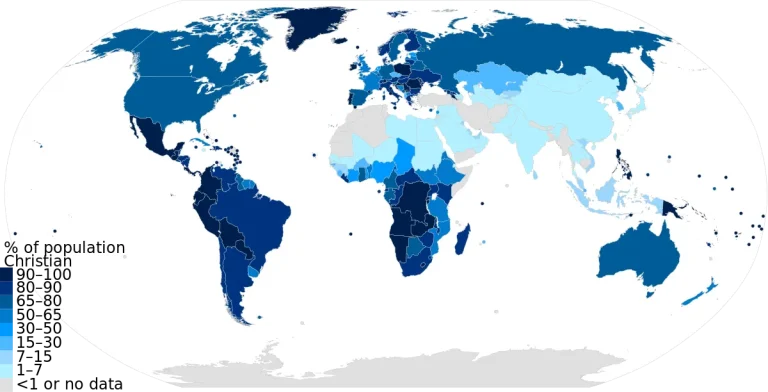Why Do I Cry When I Think About God?
Have you ever felt so moved by thoughts of God that you started crying? If so, you’re not alone. Many people experience strong emotional reactions when contemplating spiritual matters.
If you don’t have time to read the full article, here’s the short answer: People often cry when thinking about God because they feel overwhelming love, gratitude, awe, conviction over sin, or a sense of connection to something greater than themselves.
In this comprehensive guide, we’ll explore the psychology behind crying when you think about God or spiritual topics. You’ll learn about scientific theories and religious perspectives on why this happens to so many people.
Feeling Overwhelming Love and Gratitude
God’s Love Touches Us Deeply
When we contemplate the vastness and wonder of God’s love, it can stir up intense emotions within us. His love reaches down to the deepest parts of our being, touching us in profound ways. We may feel overwhelmed, even to the point of tears, as we grasp how deep and wide God’s love is for us (Ephesians 3:18).
God loves us with an everlasting love that existed before time began (Jeremiah 31:3). He knit us together in our mother’s womb and knew us intimately even then (Psalm 139:13-16). This amazing realization of being truly known and accepted can bring tears of relief and joy.
We may also cry tears of remorse and repentance as God’s love exposes areas of sin and darkness within us. His love brings conviction and yet also healing, restoring what was broken. “The Lord is close to the brokenhearted and saves those who are crushed in spirit” (Psalm 34:18).
Thankfulness and Appreciation Overflows
As we meditate on the sacrifice Jesus made for us on the cross, bearing the punishment for our sins, we can be filled with astonished gratefulness. “God demonstrates his own love for us in this: While we were still sinners, Christ died for us” (Romans 5:8).
Such lavish love can bring us to tears of awe and heartfelt praise.
We may also weep with joy and relief as we realize that despite our failures and flaws, God still loves us unconditionally. His love is not based on our performance but on his faithfulness. “The Lord appeared to us in the past, saying: ‘I have loved you with an everlasting love; I have drawn you with unfailing kindness'” (Jeremiah 31:3).
This security allows us to rest in his embrace.
Being loved so extravagantly, beyond what we could ever deserve, often evokes intense thankfulness that spills over into tears. We long to pour out our praise and gratitude to God. Our souls find release as we worship him for his goodness and mercy that follows us all the days of our lives (Psalm 23:6).
Experiencing Awe and Wonder
Feeling awe and wonder in the presence of God can be a profoundly moving spiritual experience. As human beings, we are wired to feel emotional stirrings when confronted with something larger than ourselves that defies easy explanation.
Coming into contact with the divine naturally lends itself to feelings of awe.
According to research from top universities like UC Berkeley, awe is triggered when we encounter stimuli that are vast, that transcend our daily experience, and that require new cognitive categories to comprehend. God certainly fits that description.
His infinite nature and unfathomable ways can inspire deep awe and make us feel small in comparison.
In addition, tears in spiritual settings may signify being overwhelmed by transcendent emotions we cannot easily process or articulate logically. Researchers suggest that awe helps recalibrate our mental frameworks and builds new neural connections as we incorporate extraordinary new experiences.
Furthermore, crying in response to God demonstrates deep emotional engagement. When our hearts and minds are profoundly moved, it can trigger physical reactions like tears, chills, or feeling lightheaded. Divine encounters that leave us in tears are intensely meaningful and stick with us.
The 17th century French mathematician and religious philosopher Blaise Pascal summed it up well: “The heart has reasons that reason cannot understand.” Our tears before God signify a mystery and wonder that logic and rational thought cannot fully capture.
Conviction of Sin and Repentance
Crying when thinking about God can be a sign of a deep spiritual conviction of sin and a stirring towards repentance. Here are some key reasons why this may happen:
The Weight of Sin
When we reflect on God’s holiness, goodness, and love for us, it can highlight the gravity of our own sin. Seeing our life choices and actions in contrast to God’s perfect righteousness can bring a godly sorrow and grief over the ways we have fallen short.
King David cried out to God, “My sin is always before me” (Psalm 51:3). His awareness of his sin brought deep conviction and repentance. When we gain insight into the seriousness of sin, it humbles us and may move us to tears of contrition.
Longing for Forgiveness
Tears may flow as we long to be cleansed and reconciled to God. We cry because we mourn our offenses against our Creator. We weep because we want His mercy and yearn to have fellowship restored.
The tax collector in one of Jesus’ parables “beat his breast and said, ‘God, have mercy on me, a sinner'” (Luke 18:13). His remorse led him to appeal to God’s forgiveness with a broken spirit.
Repentance and Life Change
Reflecting on areas that need changing can bring an emotional release through tears. When we finally face the hard truths about ourselves and determine to turn from sin, it can be painful yet freeing.
Psalm 126:5-6 says, “Those who sow with tears will reap with songs of joy. Those who go out weeping, carrying seed to sow, will return with songs of joy, carrying sheaves with them.” Godly sorrow leads to repentance and rejoicing.
The Call to Holiness
A fresh encounter with God may prompt awareness of how far we are from spiritual maturity. His call to live holy lives can feel daunting yet inspire us towards greater Christlikeness. This purification process may involve mourning and tears.
2 Corinthians 7:10 notes how “godly sorrow brings repentance that leads to salvation and leaves no regret.” Our tears water the seeds of righteousness God is sowing in our hearts.
Sense of Connection to Something Greater
Feeling a deep sense of connection to something greater than oneself is a profound and meaningful human experience. When we think about God or a divine power, it can evoke intense emotions and bring us to tears for several reasons:
We may feel moved by the awe and mystery of it all. The vastness and wonder of the universe, the intricate complexity of life on Earth, the inexplicable human experiences of love, joy, creativity – all of this points to something mysterious and wondrous that is so much bigger than us as individuals.
Feeling connected to the source of all this awe can be powerfully emotional.
We recognize our smallness yet feel cradled. Though we are tiny specks in the scale of the cosmos, many feel that God or a higher power somehow knows us intimately and cares for us deeply. This contrast between feeling small yet cared for elicits deep gratitude and tears of joy.We transcend our everyday concerns. In moments of spiritual connection, our usual worries and frustrations fade away. We taste timelessness, boundlessness, oneness. This letting go of ego to merge with something greater is profoundly moving.We heal from emotional wounds. Thinking about God can help us make peace with painful issues from our past. Believing in unconditional divine love and forgiveness enables us to forgive ourselves and others.We envision a better world. Connecting to spiritual values like compassion, justice, and loving one’s neighbor as oneself ignites hope that humanity can transcend greed, conflict, and suffering. This idealism moves us emotionally.
In the end, tears in spiritual moments signify that we’ve touched the depths of our soul. Whether we interpret our feelings as an encounter with God, or simply an experience of awe, smallness, timelessness or oneness, they remind us that there are meanings in this life deeper than what can be measured or logically explained.
And this realization alone is enough to make anyone cry tears of joy and gratitude.
Conclusion
In summary, people often cry when contemplating God or spiritual matters because they feel moved by profound love, gratitude, awe, conviction, or connection. The depth of these emotional experiences can be overwhelming in a positive way.
Understanding the psychology behind crying when you think about God provides insight into these intense spiritual moments. If you’ve ever cried tears of joy or sorrow when connecting to the divine, you can see you’re not alone in responding emotionally.








